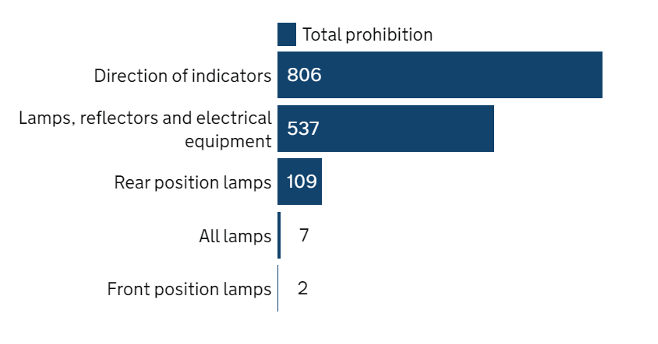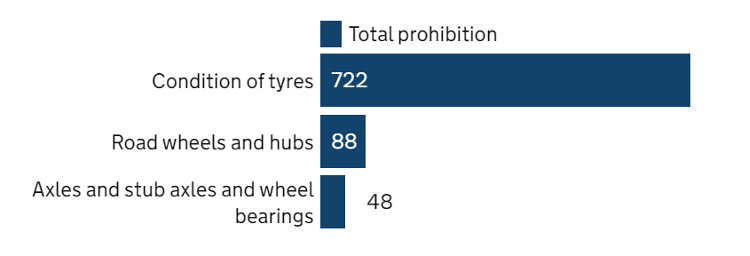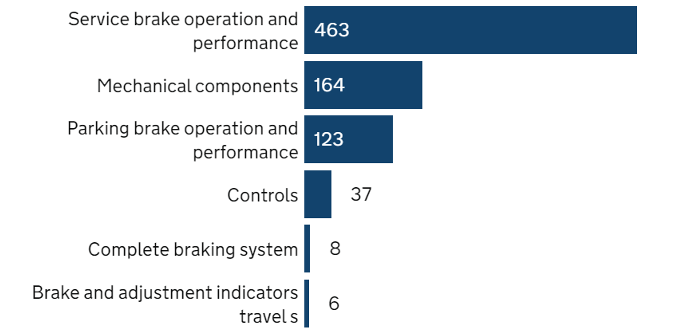
DVSA release the latest Light trailer compliance report
Between 2019 and 2021 the Driver and Vehicle Standards Agency (DVSA) performed random roadside checks on nearly 4,000 trailers categorised as ‘non-testable’. Non-testable refers to trailers which are not subject to an annual MOT and are commonly used by landscape professionals: they have a gross weight of less than 3,500kg and standard over-run brakes which operate via the drawbar of the trailer.
Regardless of the exemption from an MOT, trailers in the non-testable category must be roadworthy and maintained/serviced to ensure their roadworthiness.
Half of the trailers checked as part of this survey by the DVSA failed to pass and of this group, 41% were issued with an immediate prohibition (i.e. defects so dangerous that repairs were required before further use of the trailer were permitted).
The most common defects identified were as follows:
Lamps (36%)

Running gear (21%)

Brakes (20%)

Of the trailers inspected, the data indicate those used in accordance with construction had the highest prohibition rate.
Although serious, the defects identified by inspectors were simple to identify and rectify. Little training is required to identify many of the defects, most of which were likely to have been present when the vehicle and trailer were collected at the beginning of the day/start of the shift.
A vehicle and trailer inspection checklist would capture the majority of issues identified above and could be carried out by any competent member of staff following basic training.
All trailer manufacturers provide maintenance information including how each component of a trailer should function and how it should work, as well as a maintenance schedule. This information is provided with the sale of the trailer but is also free to download from the manufacturer's website.
Operators of trailers are reminded to review their equipment maintenance schedule and ensure it is inspected and maintained in accordance with manufacturer recommendations.
BALI members have unlimited access to Quest, a third-party provider of workplace documents. Quest provides a vehicle checklist document which can be downloaded and used as part of a system of checks for vehicles and equipment.
